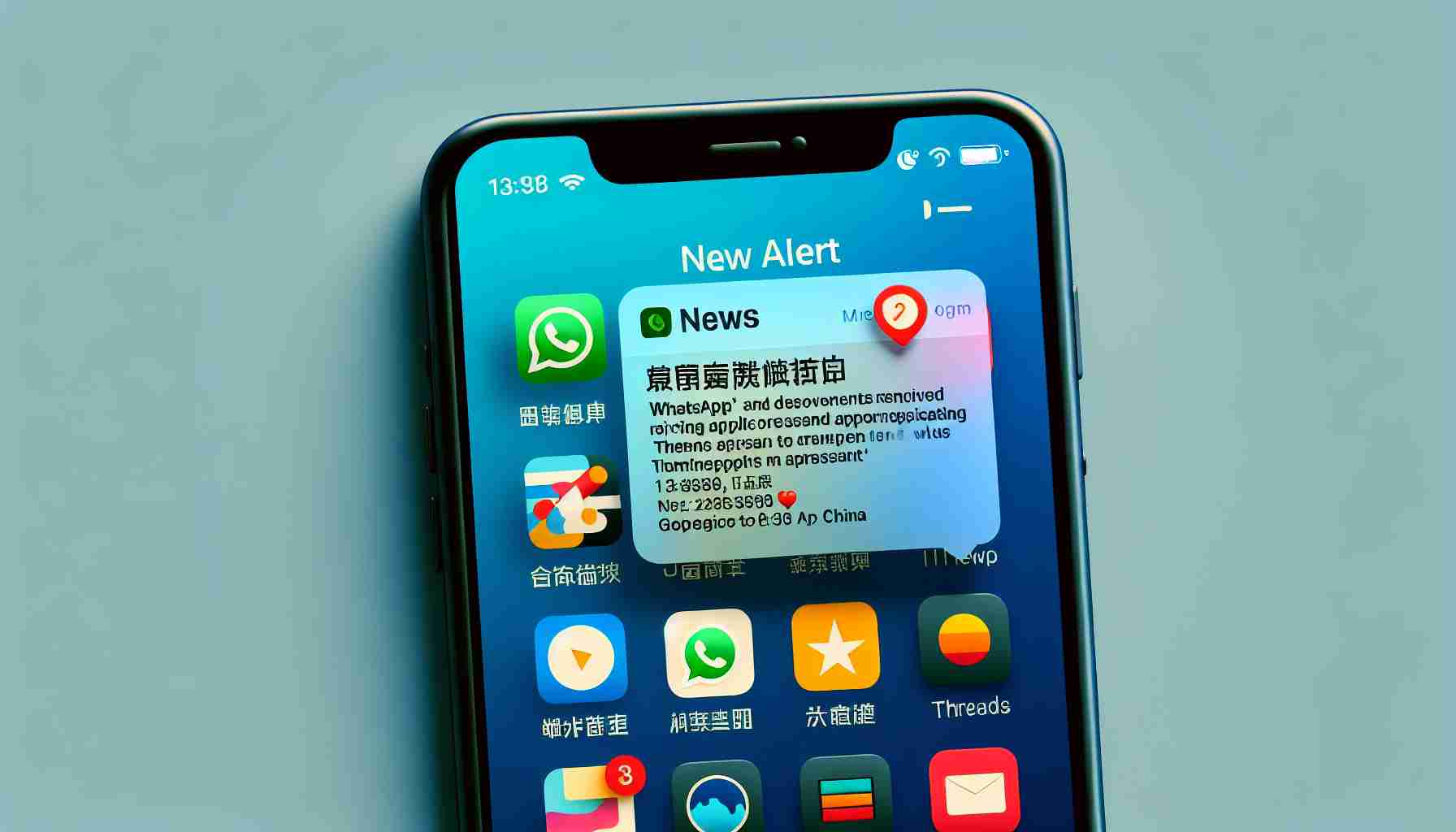Chinese Regulators Intensify Internet Control
In a recent move that underscores the tightening grip on cyberspace, China has instructed Apple Inc. to remove WhatsApp and Threads, owned by Meta Platforms Inc., from its App Store. This directive is part of a broader cybersecurity measure by the country, which believes these applications could threaten its national security.
Implications for International Tech Services Amid U.S. Concerns
This development emerges as the United States is contemplating actions against TikTok, a popular app owned by China’s ByteDance Ltd., also for security reasons. Amid these deliberations, U.S. officials suggest ByteDance might have to divest TikTok or face a potential service ban stateside.
Apple, in conveying the decision, made it clear they are legally compelled to comply with the laws within the jurisdictions they operate, even if there are points of contention. Despite the removal in China, Apple assures that both WhatsApp and Threads are still obtainable in app stores of other regions.
Digital Isolation for Foreign Social Media
While foreign platforms like WhatsApp were largely unusable in China without the aid of VPNs, this formal removal from the App Store solidifies the digital isolation. Mainland users will find it increasingly difficult to access international platforms and the diverse content they offer.
Intrusive Regulatory Measures by Beijing
App developers in China had been previously instructed by the government to complete a registration process. Any non-compliant applications after the deadline would be susceptible to regulatory action. Equally, app developers are under obligation to establish protocols for managing “illegal information.” Websites, apps, and even advanced AI language models have found themselves within the scope of intensified content restrictions.
News of the app store removal was initially reported by The Wall Street Journal, with a Meta spokesperson redirecting inquiries to Apple’s official statement on the matter. This comes at a time when Apple’s CEO Tim Cook emphasized China’s significance to their business, both in consumption and production, further highlighting the complex relationship many international companies navigate while operating under Chinese law.
Relevance of WeChat and Chinese Alternatives to WhatsApp
An important piece of context not mentioned in the article is the prevalence of WeChat, a messaging app developed by the Chinese tech giant Tencent, which dominates the messaging app market in China. WeChat not only serves as a messaging platform but also offers a wide range of services including payments, e-commerce, and social media functionalities. Its ubiquity in daily life places it far ahead of foreign competitors like WhatsApp in the Chinese market. The removal of WhatsApp further consolidates WeChat’s dominance.
Encryption and Privacy Concerns
Another relevant fact is that WhatsApp features end-to-end encryption, ensuring that messages can only be read by the sender and receiver. This encryption has been a point of contention in several countries concerned about surveillance and law enforcement challenges. In the context of China’s cybersecurity measures, apps like WhatsApp that provide encrypted communication pose a regulatory challenge, as they limit the government’s ability to monitor conversations.
Key Challenges and Controversies
The key challenge associated with this topic is the balance between national security and user privacy. China cites national security for the removal of foreign apps, but this move is also seen as a means to control the flow of information and suppress dissent. There’s also the challenge of market access for foreign tech companies in China, which face strict regulations and censorship.
Controversy arises from the perceived uneven playing field, with Chinese apps like TikTok enjoying relatively unrestricted access to international markets, while foreign apps are banned or face heavy restrictions in China.
Advantages and Disadvantages
The advantages of China’s stringent cybersecurity measures include greater control over the digital ecosystem and the protection of what the government defines as its national interests. For local app developers and services like WeChat, the removal of foreign competition can lead to increased market share and growth opportunities.
However, the disadvantages include restricted freedom of information for Chinese users, a lack of competition that may inhibit innovation, and potential diplomatic tensions with countries that see these actions as protectionist or as a form of censorship.
For suggested related links regarding information on digital services and cybersecurity measures in China, you could visit the Chinese Cyberspace Administration’s official website or check out credible news sources that cover technology and cyber policies. However, to ensure the validity of the URL, no specific links are provided in this response.
In summary, the removal of WhatsApp and Threads from the App Store in China is indicative of the broader tension between maintaining national security and ensuring information freedom, and it raises questions about the fairness of access for international tech companies in different global markets.
